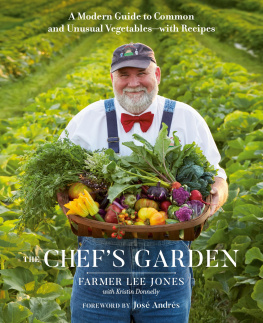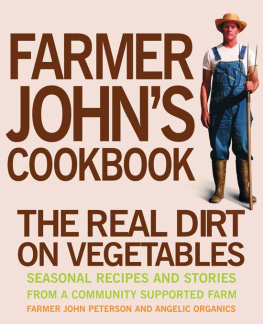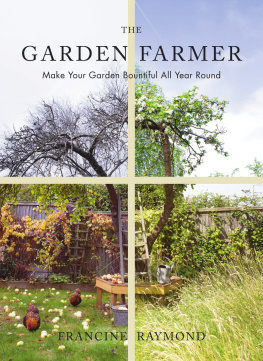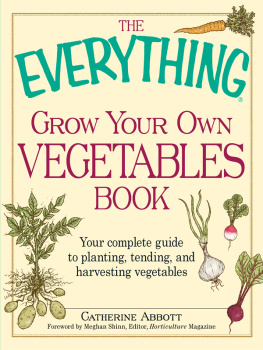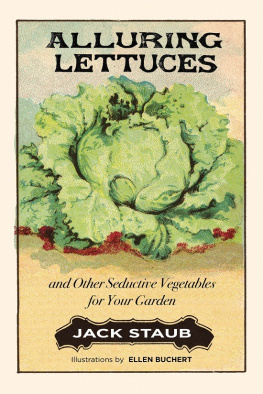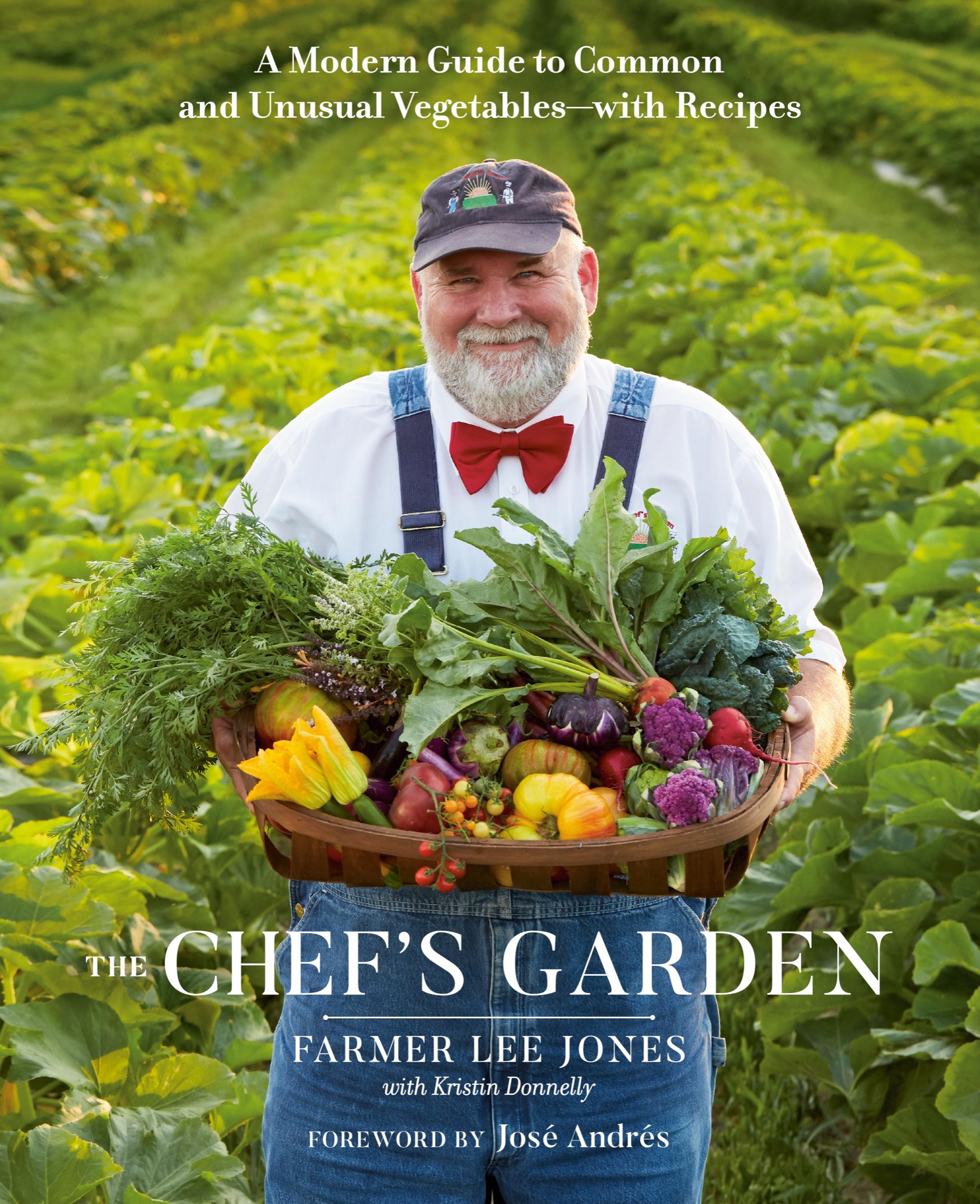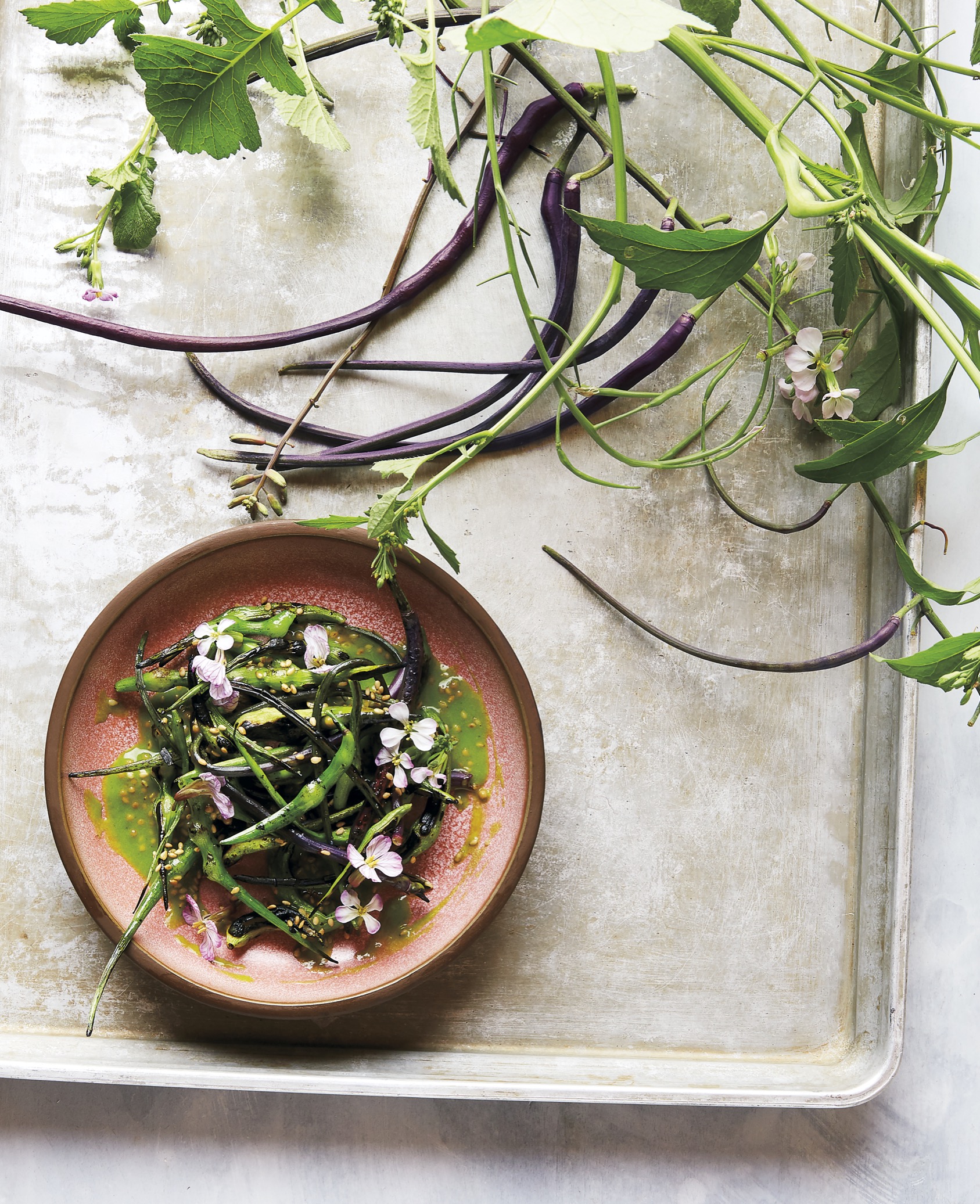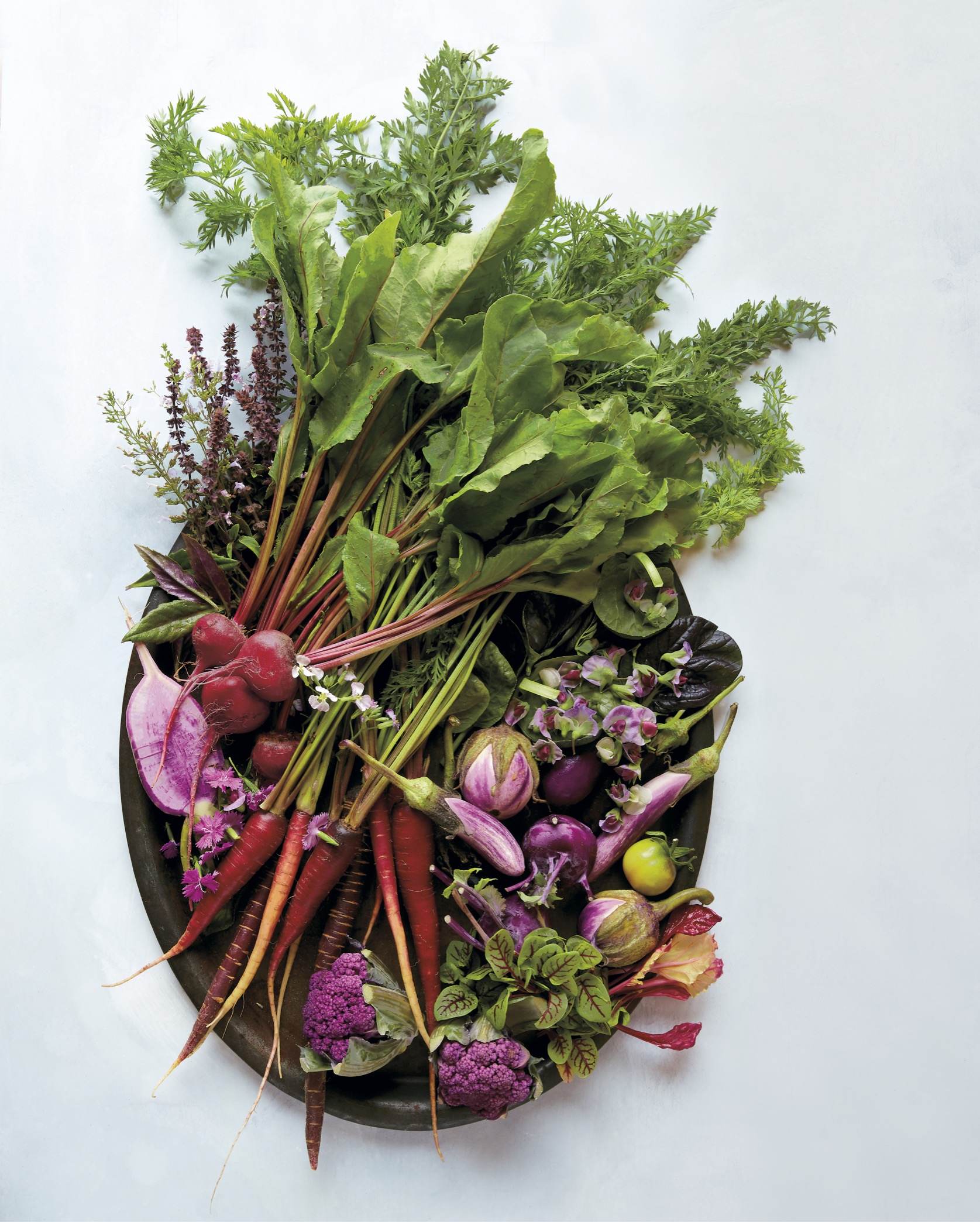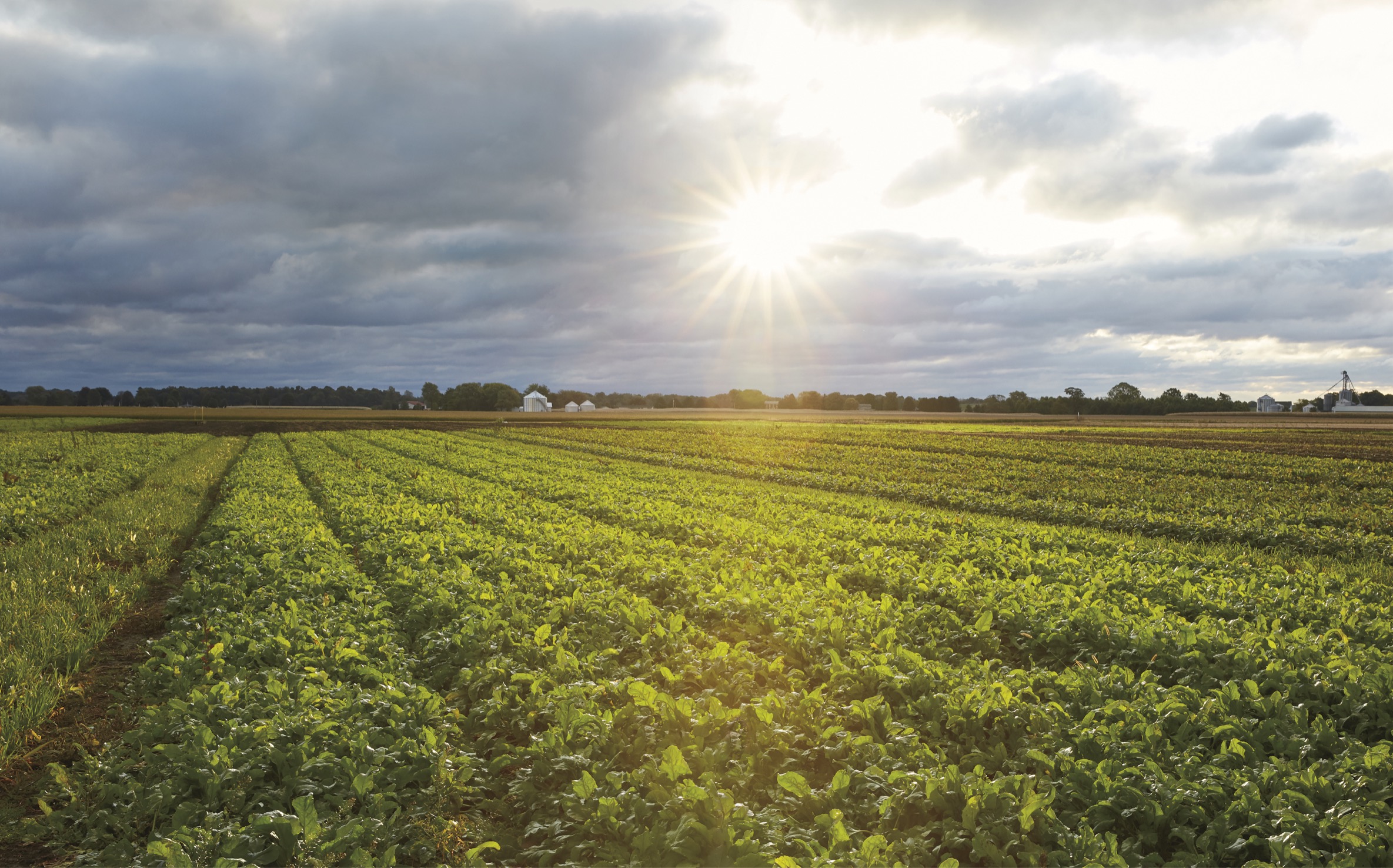
an imprint of Penguin Random House LLC
penguinrandomhouse.com
Copyright 2021 by The Chefs Garden, Inc.
All photographs by Yossy Arefi and Michelle Demuth-Bibb except as follows: choy sum, courtesy of Tim Turner.
Recipes by Jamie Simpson, Dario Torres, Tristan Acevedo, and Elizabeth Studer
Penguin supports copyright. Copyright fuels creativity, encourages diverse voices, promotes free speech, and creates a vibrant culture. Thank you for buying an authorized edition of this book and for complying with copyright laws by not reproducing, scanning, or distributing any part of it in any form without permission. You are supporting writers and allowing Penguin to continue to publish books for every reader.
Library of Congress Cataloging-in-Publication Data
Names: Jones, Lee, 1961 author. | Chefs Garden (Farm)
Title: The Chefs Garden: a modern guide to common and unusual vegetableswith recipes / Farmer Lee Jones.
Description: New York: Avery, an imprint of Penguin Random House, [2021] | Includes index.
Identifiers: LCCN 2020021313 (print) | LCCN 2020021314 (ebook) | ISBN 9780525541066 (hardcover) | ISBN 9780525541073 (ebook)
Subjects: LCSH: Vegetables. | LCGFT: Cookbooks.
Classification: LCC TX391.J6 2020 (print) | LCC TX391 (ebook) | DDC 641.6/5dc23
LC record available at https://lccn.loc.gov/2020021313
LC ebook record available at https://lccn.loc.gov/2020021314
p. cm.
The recipes contained in this book are to be followed exactly as written. The publisher is not responsible for your specific health or allergy needs that may require medical supervision. The publisher is not responsible for any adverse reactions to the recipes contained in this book.
pid_prh_5.7.0_c0_r0
CONTENTS
FOREWORD
The future of cuisine is vegetables, my friend Ferran Adri, one of the most genius people I have ever met (and maybe who has ever lived), said on a trip to The Chefs Garden with the great Charlie Trotter back in 2006. At that point, the culinary world was a very different place: butcher shops were opening left and right, we were in the middle of a coast-to-coast bacon renaissance, and Atkins was the diet of the day. But on this visit, clearly Ferran had seen the light, and made his bold prediction.
Ferran has always been ahead of his time. He defined avant-garde cuisine for almost thirty years at his legendary restaurant El Bulli. But on his prophecy for vegetables, it turns out he was more than two decades late. Because this same prediction was made in 1983 by the Jones family of Huron, Ohio, who realized something very simple and very powerful: that vegetables would be more and more vital to American cuisineso much so that they bet the farm on it. If there was one moment in Americas culinary history that deserves to be memorialized forever on a statue, its the meeting around the card table at which the late Bob Jones Sr. slammed down his fist and proclaimed, Were going to grow for chefs.
If it werent for the Jones familys fateful decisionand the path theyve cleared by tractor and trowel in the decades sinceI would argue that Americas food scene wouldnt be where it is today. No farmers have touched the lives of so many chefs, and literally touched the vegetables destined for so many fine dining tables around the country. Its amazing; you can trace three generations of chefs who have been influenced by Farmer Lee and his family, each one carrying forward the torch of farm-to-table.
Being a chef in Washington, DC, the legacy of the great Jean-Louis Palladin is large in my mind. He was an early proponent of the potential of American produce, starting at The Chefs Garden. The next generation was chefs like Charlie Trotter, whose own vegetable cookbook, published in 1996, remains one of the gold standards for celebrating the beauty and complexity of vegetable cooking. And today, the Roots conference brings together a long list of impressive chefs to the sacred ground of The Chefs Garden to learn the ways of the masterand to hear from The Chefs Gardens own Jamie Simpson, an incredible chef in his own right.
My team of chefs at ThinkFoodGroup have worked with The Chefs Garden for many years. Nearly every single one of my restaurantsfrom the two-starred Michelin to the fast casualhave used product from the farm. And its not just the amazing product but also the teams deep wealth of information; those at The Chefs Garden are like a sort of vegetable hotline. In this way, the farm has become part of our R&D process for many vegetable-forward dishes. One of our favorite methods for developing a new dish is to learn about a vegetable weve never used before, or to go deep on one we think were familiar with, and play with it in dozens of different ways until we find what feels right, when the vegetable feels at home.
When we were developing our menu for China Chilcano, my Peruvian-Japanese-Chinese restaurant, Farmer Lee sent us fifteen different kinds of potato for researchfifteen kinds! We fried and baked and roasted each of them, trying to figure out which one wed want on the plate, and ended up creating our own version of carapulcra, an ancient dish from the Andes of potatoes, pork, and peanuts using the creamiest purple and yellow potatoes whose funny name is Peter Wilcox. A couple years ago, when we were thinking about a new carrot dish for my avant-garde restaurant minibar, we gave Lees root enthusiasts a call for advice on what to use. We developed an incredible curry of both baby and petite carrots... we placed stewed baby carrots alongside bursting carrot spheres, with shavings of multicolored petites on topa true celebration of the humble carrot.
So, what is it about The Chefs Garden that keeps us all coming back, every single season, to see what Farmer Lee has on harvest? They always listen to us chefs, trying to understand what we want to be putting on our plates... and what we should be putting on our plates. It is this question of demand and supplythey have created this positive feedback loop with chefs. Its like that Kevin Costner movie: If you grow it, they will come.
And it really is a field of dreams! We are talking about some of the richest soil in the world. This is terroir, one of those concepts that even this Spaniard will say in French. Everyone talks about the Tempranillo of Rioja, the Pinot Noir of Burgundy, the Cabernet of Napa... but not enough people are talking about the asparagus of Milan, Ohio. The soil of California may be good for growing huge amounts of produce, but the soil near the shores of Lake Erie is perfect for the juiciest tomatoes, the most delicate squash blossoms, and the sweetest carrots.
Thats because Farmer Lee truly understands the value in growing for flavor, not tons per acre. This is a concept that most chefs today would find obvious

